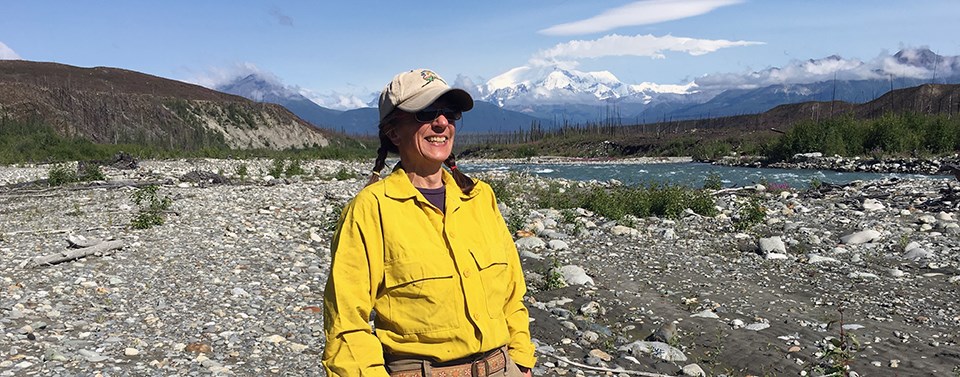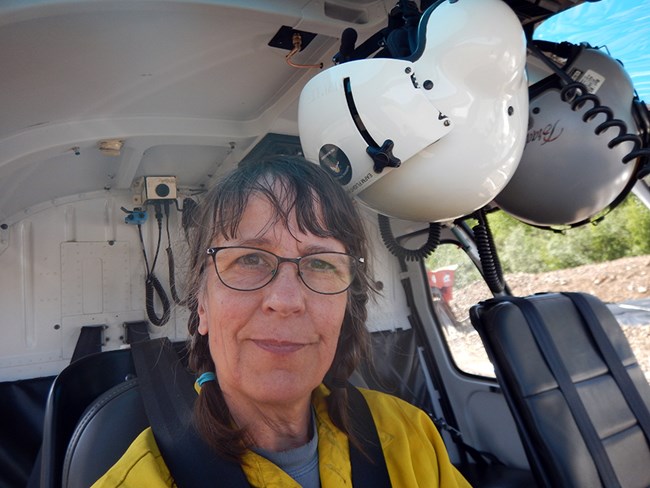Last updated: February 11, 2022
Article
Women in Fire Science - Jennifer Barnes

I started working in fire in Montana with the U.S. Forest Service and loved working in fire! My other love was forest ecology and plants. I worked as a biological technician and did botany and forest surveys. I met a fire ecologist, which were rare in those days, and realized that a job as a fire ecologist combined the best of two worlds – the excitement of wildfire and my love of science and ecology. I earned a Master's Degree in Plant Ecology, then I took the seasonal biological technician job in Wrangell-St. Elias and started working with the NPS fire program. I worked a few years at Alaska Fire Service for the Bureau of Land Management (BLM) too.
I have continued working as the regional fire ecologist because I feel there is still so much to learn about our fire environment - information that can help our fire managers manage wildfires and plan fuels treatments. My job is to provide an understanding of the effects of fire or fuels treatments on our ecological systems, to understand the fire cycles (regimes) in our parks and to communicate this information. We use monitoring, research, and technology to provide effective feedback. I have focused on fire effects - vegetation, fuels, permafrost, fire history, fire behavior, burn severity, and fuels treatment effectiveness within boreal forest and tundra ecosystems.

One of my challenges in the job is the expanse of the area I work in - 54 million acres! We can only monitor or study snippets of what is happening out there. But I think the biggest challenge we are all facing is climate change. How it is changing our fire regimes, such as the amount of area burned, severity, and frequency of fires; the potential impacts on communities and the parks, but also the ecological changes after a fire.
If you, or someone you know, are interested in working in fire ecology, there are a lot of entry level seasonal fire effects biological technician positions within the NPS. The fire ecologist positions are in the Ecology series and require a certain number of ecology/biology credits in college.
Tags
- bering land bridge national preserve
- denali national park & preserve
- lake clark national park & preserve
- noatak national preserve
- wrangell - st elias national park & preserve
- yukon - charley rivers national preserve
- fire science
- meet the scientist
- women in fire science
- women in fire
- fire ecology
- wildland fire
- wildland fire careers
